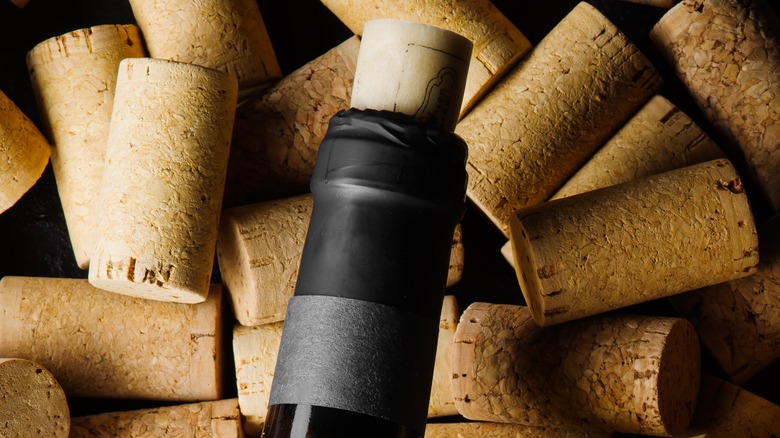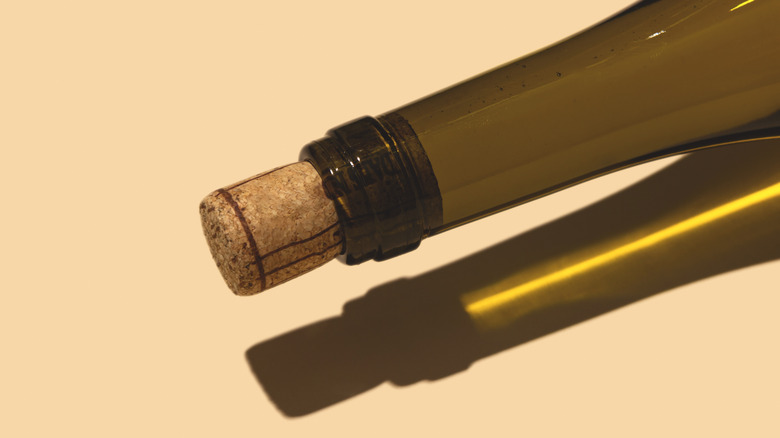What It Means When Wine Is 'Corked' (And What Are The Smells To Watch Out For)?
As we are so often reminded throughout our lives, nothing good lasts forever. This is particularly true of food. How many times have you expectantly opened up the fridge, hoping to fry up a plump chicken breast or crunch into a juicy apple, only to find that your meat is slimy and your apple is rotted through with brown mush?
Fortunately, there are ways to tell when your food is spoiled. However, in the world of alcohol, determining whether or not a product has gone bad is a more difficult process. Theoretically, certain liquors cease to age once they've been bottled. After the bottle has been opened, the liquor's quality will deteriorate, but it will remain safe to drink. Beer has a shorter shelf life, and beer can skunk, or take on a foul odor due to prolonged UV ray exposure. A wine that has gone bad is sad to have corked, and an unpleasant assault of tastes and textures will quickly inform you that your wine is corked.
The science behind corked wine
When you hear that wine has been corked, you might imagine a corkscrew malfunction and a glass of pinot filled with bits of floating detritus. However, it's actually a serious problem, with an impact that goes beyond just an unpleasant mouthful of cork.
Essentially, when the wood is turned into corks using processes that put it into contact with chlorinated compounds, said chlorinated cork is, by virtue of the contaminants that are inevitably involved in the winemaking process, infested with fungus, a powerful chemical called 2,4,6-trichloroanisole, or TCA, begins to pollute your wine. Cork rot is generally associated with natural wooden wine corks, but it can also find its way into your wine via any wooden implement present in a winery.
Research into corked wine has led winemakers away from chlorine-based chemicals, which has lowered the rates of cork rot. Nevertheless, other chemicals can still cause it, so you should know what the telltale signs of corked wine are.
How to tell if your wine is corked
Fortunately, if you're wired about these chemical contaminants in cork ruining your next wine night, you might find some comfort in the fact that corked wine is exceedingly rare – experts in the industry explain that only a small percentage of corks are affected. Additionally, the introduction of screw cap technology to the winemaking sphere has further contributed to the eradication of cork rot.
One of the best ways to determine whether or not your wine is corked is to give your glass a whiff. Tainted wine takes on a noticeable musty aroma, comparable to that of a wet dog, or a moldy basement. In the earlier stages of cork rot, your wine's flavor profile will be muted, having lost some of its fruity bites. The alcohol content of wine allows it to remain potable even after it has been corked, but a wine that has been fully infected will be utterly unpalatable.
Though it can be difficult to combat a contaminated cork, if your bottle of red has started to produce another chemical, hydrogen sulfide, you can neutralize its unpleasant odor by dropping a penny into the bad wine.


